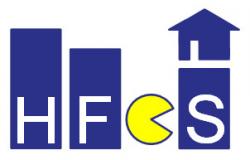Household Finance and Consumption Survey (HFCS)
The Household Finance and Consumption Survey provides the National Bank of Belgium (NBB) with unique microeconomic information about the financial situation of households. This information supplements the available macroeconomic data. It is the Belgian part of a European project. In 2023, the NBB organised this survey, which forms part of a European project, for the fifth time. The data collection was completed by the end of 2023. The NBB thanks all the families who took the time to participate in this survey.
2023 survey

In 2023, the National Bank of Belgium conducted a survey into the financial behaviour of households – the fifth such survey to be carried out. More than 10 000 households were selected at random, from which a number were invited to participate in the survey. Over 2 100 ultimately took part, providing a sufficiently representative sample of the total population of households in Belgium.
The survey is part of a harmonised data collection project carried out across the euro area, coordinated by the Household Finance and Consumption Network.
Households were remunerated for their participation in the survey, but they could opt for their fee to be donated by the NBB to one of the following NGOs:
- Amnesty International
- the Belgian Cystic Fibrosis Association
- Handicap International
- Oxfam
- Plan International
- Stichting tegen Kanker/Fondation contre le Cancer
- Make-A-Wish, and
- Food banks.
Thanks to the generosity of the households involved in the fifth wave of the survey, the NBB was able to donate a total of €18 760 to these organisations.
For additional information on how the data collected in the survey are used and how the survey contributes to a greater understanding of the Belgian economy, please contact the National Bank of Belgium.
Tel: +32 (0)2 221 44 66
Email: [email protected]
Results of previous survey waves
The fourth wave of the survey took place in 2020 and 2021. In total, 2,130 Belgian households participated. The results were published on the Bank’s website in June 2022.
The third wave of the survey was organised in 2017. The results for Belgium were published in May 2020. The results at euro area level were published on the website of the European Central Bank (ECB) in March 2020.
The second wave of the survey was launched in 2014. The results can be consulted here.
The results of the first wave, carried out in 2010, are available here.
Please find below a list of selected NBB publications which made use of the HFCS data:
-
Cherchye, L., Demuynck, T., De Rock, B., Kovaleva M., Minne G., de Sola Perea M. and Vermeulen F. (2023), ‘Poor and wealthy hand-to-mouth households in Belgium’, Review of Economics of the Household.
- de Sola Perea M, J Mohimont and M-D Zachary (2022), “At the heart of the turmoil: the pandemic, households and their financial situation”, NBB, Economic Review, October.
- Mohimont J, M de Sola Perea and M‑D Zachary (2022), “Softening the blow: Job retention schemes in the pandemic”, NBB, Working Paper Research 414.
- Bover O, JM Casado, S Costa, P Du Caju, Y McCarthy, E Sierminska, P Tzamourani, E Villanueva and T Zavadil (2016), “The distribution of debt across euro area countries: the role of individual characteristics, institutions and credit conditions”, International Journal of Central Banking, 12(2), 71-128.
- De Backer B, P Du Caju, M Emiris and C Van Nieuwenhuyze (2015), “Macroeconomic determinants of non-performing loans”, NBB, Economic Review, December.
- Du Caju P, T Roelandt, C Van Nieuwenhuyze and M-D Zachary (2014), “Household debt: evolution and distribution”, NBB, Economic Review, September.
- Du Caju P, F Rycx and I Tojerow (2016), “Unemployment risk and over-indebtedness: A microeconometric perspective”, NBB, Working Paper Research 294.
The ECB also has a webpage on the survey (click here).
